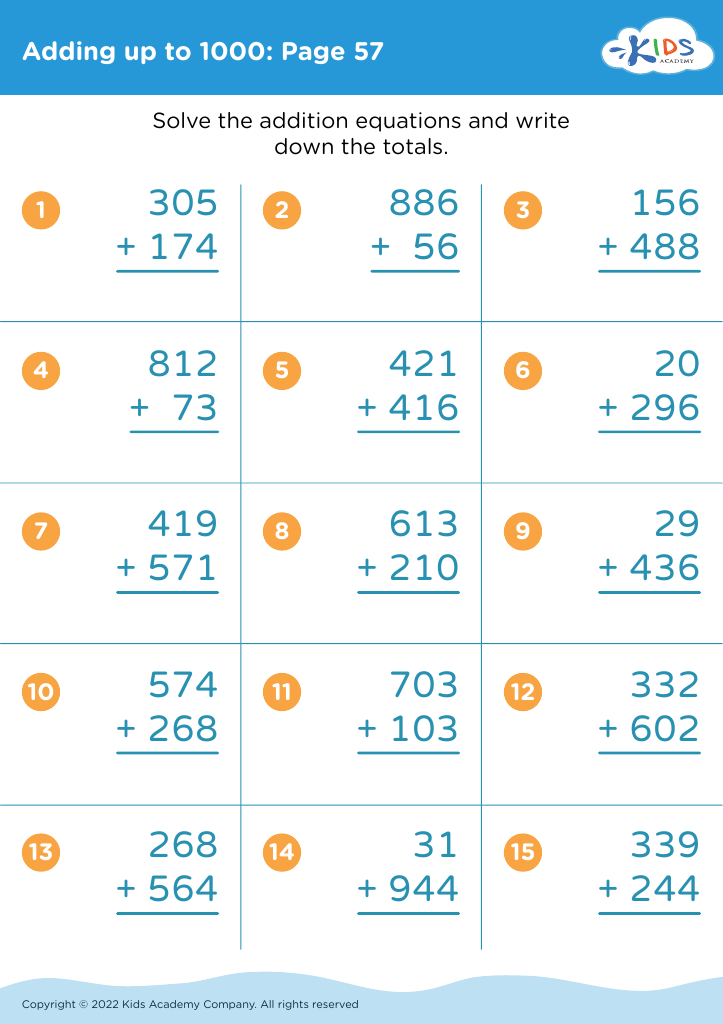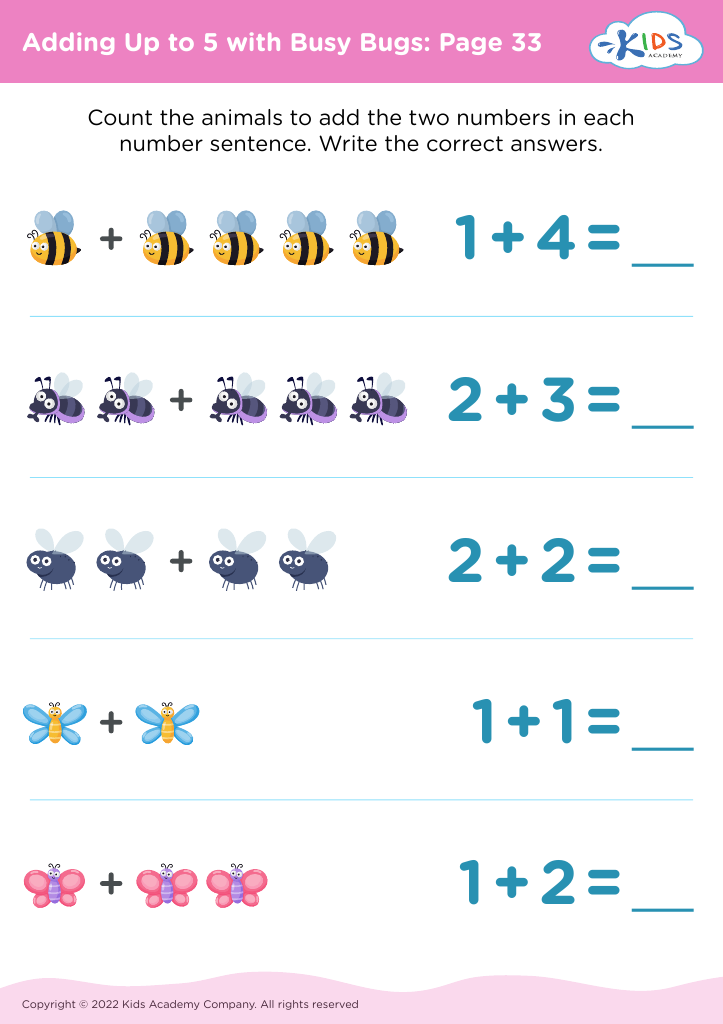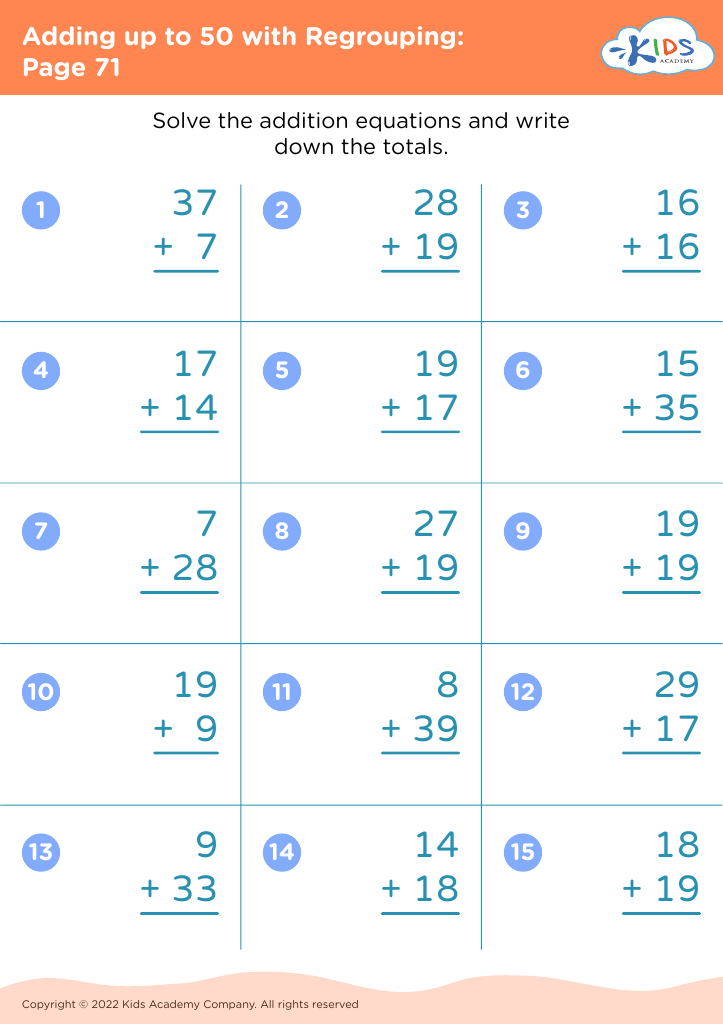Motor skills development Addition & Subtraction Worksheets for Ages 4-7
5 filtered results
-
From - To
Enhance your child’s motor skills while they master the basics of addition and subtraction with our engaging worksheets designed for ages 4-7. Our interactive worksheets seamlessly combine essential math concepts with fun motor skill activities that help little hands develop coordination and control. Each creative, educational exercise encourages children to improve their fine motor abilities as they trace numbers, color, and manipulate shapes. Perfect for early learners, these worksheets not only promote mathematical understanding but also build the foundational skills necessary for writing and other hands-on tasks. Empower your child's learning journey with our unique motor skills development resources today!
Motor skills development and the early acquisition of addition and subtraction skills are critical for children aged 4-7, as these abilities serve as foundational elements for lifelong learning. Parents and teachers should care about motor skills development because it not only enhances a child's physical coordination and control but also fosters cognitive development. Fine motor skills, such as writing or manipulating objects, are essential for performing tasks like counting, drawing numbers, and even crafting materials that enhance mathematical understanding.
Simultaneously, developing addition and subtraction skills at this age equips children with essential mathematical reasoning that lays the groundwork for more complex concepts in the future. These foundational math skills support critical thinking and problem-solving abilities, important not just in academics but also in everyday life.
Furthermore, engaging children in activities that blend motor skills with math concepts can make learning enjoyable and interactive, fostering a positive attitude towards education. This holistic approach to teaching promotes confidence, social interactions, and collaboration, which helps children thrive academically and emotionally. In summary, parents and teachers play a vital role in guiding children through these critical developmental milestones, thereby setting the stage for their future success.




















